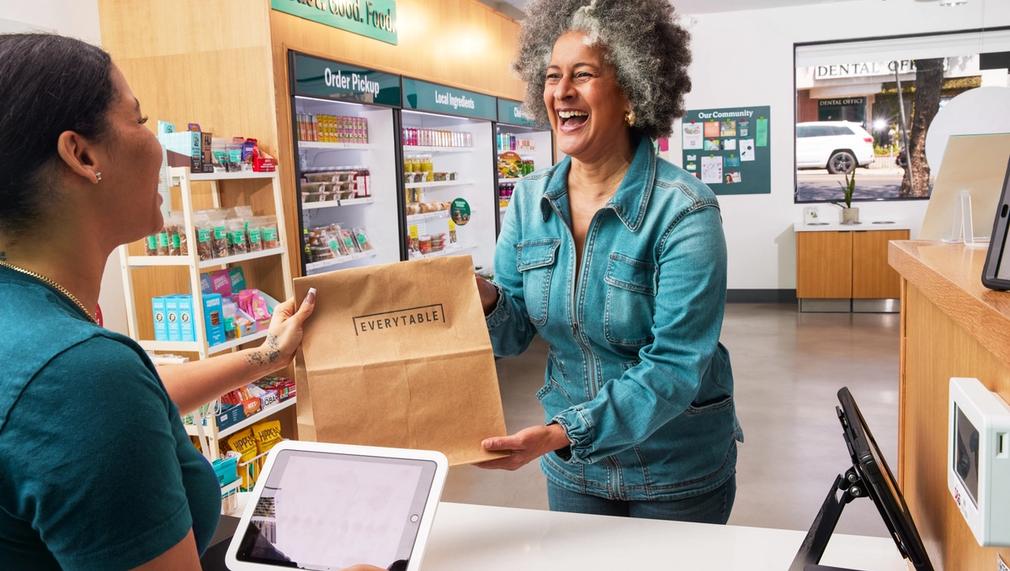Everytable Social Equity Franchise Program: Where Food Access Builds Wealth
Everytable’s Social Equity Franchise Program turns food justice into economic empowerment. By eliminating barriers to business ownership, this program empowers low-income people—particularly BIPOC and women—to own and operate Everytable stores in their own communities. These franchisees expand access to affordable, nutritious food while simultaneously building intergenerational wealth, creating jobs, and modeling ownership for their neighbors, resulting in a community-led solution that addresses both food insecurity and the racial wealth gap.

What is the primary issue area that your application will impact?
Income inequality
In which areas of Los Angeles will you be directly working?
County of Los Angeles (select only if your project has a countywide benefit)
In what stage of innovation is this project, program, or initiative?
Expand existing project, program, or initiative (expanding and continuing ongoing, successful work)
What is your understanding of the issue that you are seeking to address?
Low-income communities, especially BIPOC neighborhoods, face persistent food insecurity due to systemic disinvestment and a lack of affordable, nutritious food options. At the same time, structural barriers prevent local residents from owning businesses that could address this need. In California, the median net worth of white households is over $350,000, compared to just $4,000 for Black households and $7,000 for Latino households. This stark wealth gap limits opportunity and reinforces cycles of poverty. Everytable’s Social Equity Franchise Program addresses both food access and economic exclusion by equipping underserved entrepreneurs to own and operate healthy food stores in their communities.
Describe the project, program, or initiative this grant will support to address the issue.
Everytable’s Social Equity Franchise (SEF) Program is an innovative initiative that addresses food insecurity and economic exclusion by equipping underrepresented entrepreneurs to own and operate Everytable stores in underserved communities. Traditional franchise models require significant upfront capital and credit—barriers that disproportionately exclude low-income individuals, particularly BIPOC and women. The SEF Program removes those barriers through below-market startup loans, repaid via profit-sharing, paired with intensive training through Everytable University and wraparound mentorship.
Franchisees are recruited from Everytable’s frontline workforce and communities most affected by hunger and lack of opportunity. Once selected, they receive end-to-end support through our intensive, six month Everytable University program, including business planning, financial coaching, operations training, and ongoing peer learning. Stores are strategically located in food deserts, offering healthy, affordable meals at prices adjusted to local income levels.
This grant will support our goal of expanding the SEF Program by opening 30+ new stores in the next 5 years, improving food access for 100,000+ people annually, and creating wealth-building opportunities for franchisees and their communities.
Describe how Los Angeles County will be different if your work is successful.
If our work is successful, Los Angeles County will have a thriving network of healthy food stores owned and operated by residents from historically excluded communities. Food deserts will be replaced by affordable, nutritious options tailored to local needs. Dozens of BIPOC and women entrepreneurs will achieve business ownership, creating jobs, building intergenerational wealth, and serving as role models in their neighborhoods. This shift will not only reduce food insecurity but also close racial wealth gaps and strengthen community resilience—transforming the food system from one of inequity to one of empowerment.
Approximately how many people will be impacted by this project, program, or initiative?
Direct Impact: 30
Indirect Impact: 100,000